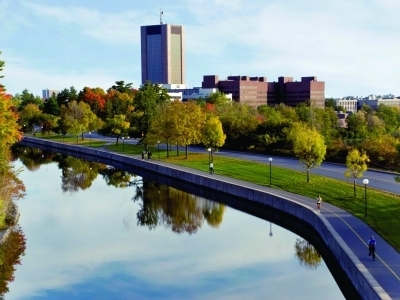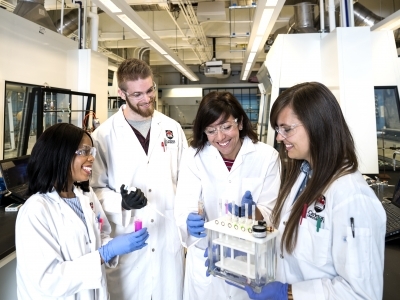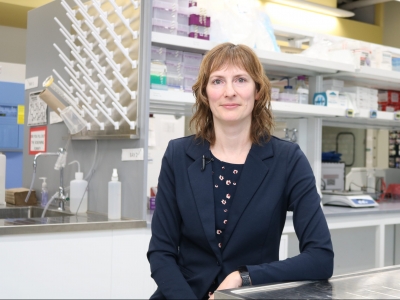Climate Change remains a burning societal, political and economic issue.
Increased interest in examining climate change in recent years has been accompanied by a growing recognition that the sciences alone cannot adequately address the complexity of this field.
That’s the impetus behind the creation of a new graduate program at Carleton University – the Collaborative Specialization in Climate Change (CSCC).

The program allows several existing programs to partner together, as the website explains, “to examine the interconnected nature of climate change, including the impacts and potential options to manage within ecosystems, communities and institutions and explore collaborative opportunities to address this global challenge.
The specialization was developed by five program ambassadors, one from each of the five faculties at Carleton: Patrick Callery, Sprott School of Business; Barbara Leckie, Department of English Language and Literature; Alexandra Mallett, School of Public Policy and Administration; Ron Miller, Department of Mechanical and Aerospace Engineering; and Jesse Vermaire, Institute for Interdisciplinary and Environmental Sciences and Geography and Environmental Studies.
As the ambassadors note: “Graduate students at Carleton University are well equipped to grapple with the problems of climate change within their specific programs. However, the multidisciplinary nature of the problem demands that students learn the perspectives provided through other disciplines to better understand why solutions that look promising from one point of view simply don’t work from another and vice-versa. This program provides students with that opportunity to consider the problem from multiple disciplinary perspectives.
The program draws on Carleton’s demonstrated strengths and its internationally-recognized climate change researchers across all faculties.
Students in the CSCC will examine the interconnected, global nature of problems, potential solutions, communities, institutions, and collaborative opportunities in relation to climate change.
They will take a formal cross-disciplinary survey course and a research seminar series in climate change science, history, politics, theory, culture, communication and media, adaptation, and mitigation; and, in programs where research is a component of the degree, through climate change focused research or, for course-based degrees, through relevant courses.
Graduates of the program will be better prepared to enter a global workforce that increasingly attends to risks and develops possible options to address the climate change problem. Students will gain a deeper appreciation for how other disciplines, outside their own, think about climate change and how they can work together in the quest for a sustainable and equitable future. The multidisciplinary skills gained from this specialization will be highly valued across various career paths such as industry, business, non governmental organizations, government, communication and media, and academia.
Watch Prof. Ron Miller, one of the program ambassadors, talk about this new program:
You can find out more about this program by going to the program page on this website, which features descriptions of the more than 100 graduate programs, pathways, and specializations.
Monday, February 1, 2021 in News, Programs
Share: Twitter, Facebook
More News Posts
Monday, February 1, 2021 in News, Programs
Share: Twitter, Facebook



